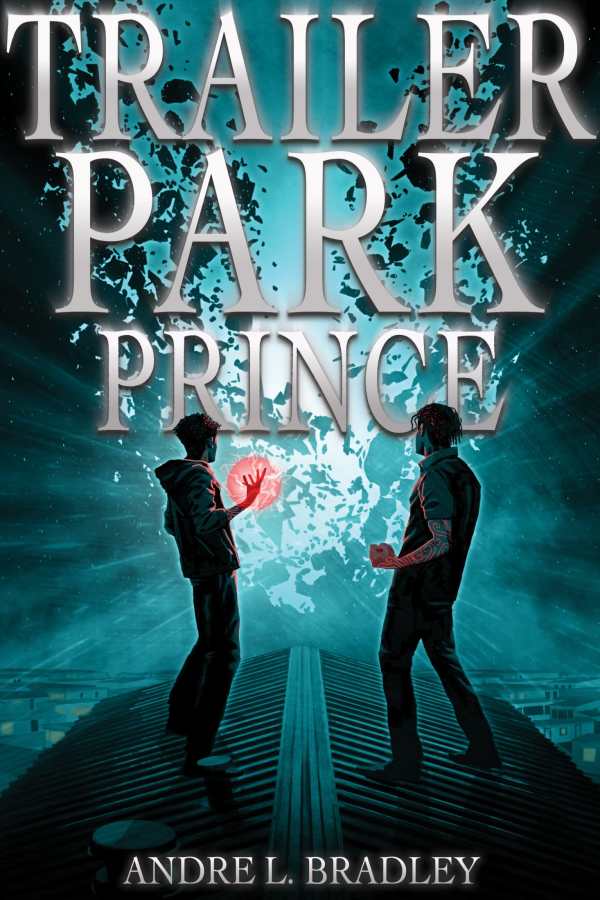Trailer Park Prince
Two brothers contend with sibling rivalry, parental disapproval, political strife, and burgeoning relationships in Andre L. Bradley’s science fiction novel Trailer Park Prince.
The Kaydans are an alien royal family with telekinetic and telepathic powers. Jormon is the heir to the throne; he and his twin brother, Noan, are treated differently by their father. And while the Kaydans meant to come to Earth in secret, their portal morphed into a rift, raining people, homes, and debris all over Georgia and exposing the family to American society. When Jormon and Noan’s father tasks them with integrating human society by attending public school, the dangerous rhetoric pitting Kaydans and humans against each other flares more.
Noan and Jormon share narrative duties with Dirk, a Kaydan teenager who grew up among humans, ignorant of his heritage. The three sound alike, though—even Dirk, who had less access to Kaydan culture and norms. The chapter headers and context clues are therefore crucial to determining who is speaking.
Ultimately, the Kaydan-human clash is an allegory, with human reactions to the aliens used to represent anti-Black racism. In the opening scene, a cross burns on a front lawn; the alien royals struggle to fit into the public school environment; and charged rhetoric abounds. But there’s also tension surrounding the circumstances of Jormon’s and Noan’s births and the relationships that grow and change among the teenagers. Because of the multilayered nature of the book, its handling of sensitive issues vacillates: it is sometimes heavy-handed; at other times, it explores the connections and conflicts between the boys and their friend groups with clarity and care.
Trailer Park Prince is a coming-of-age science fiction novel that’s packed with social and political commentary.
Reviewed by
Dontaná McPherson-Joseph
Disclosure: This article is not an endorsement, but a review. The publisher of this book provided free copies of the book to have their book reviewed by a professional reviewer. No fee was paid by the publisher for this review. Foreword Reviews only recommends books that we love. Foreword Magazine, Inc. is disclosing this in accordance with the Federal Trade Commission’s 16 CFR, Part 255.

